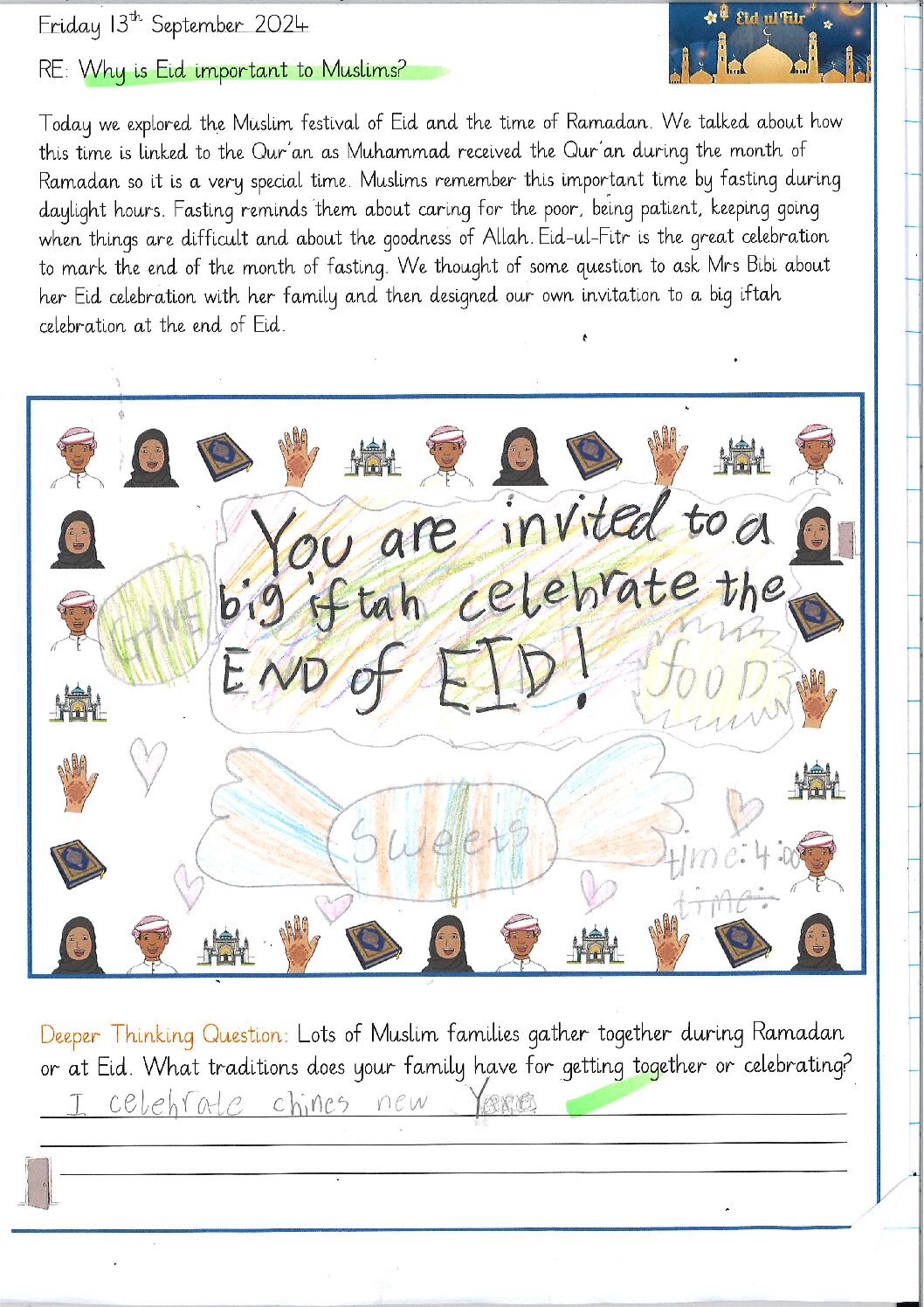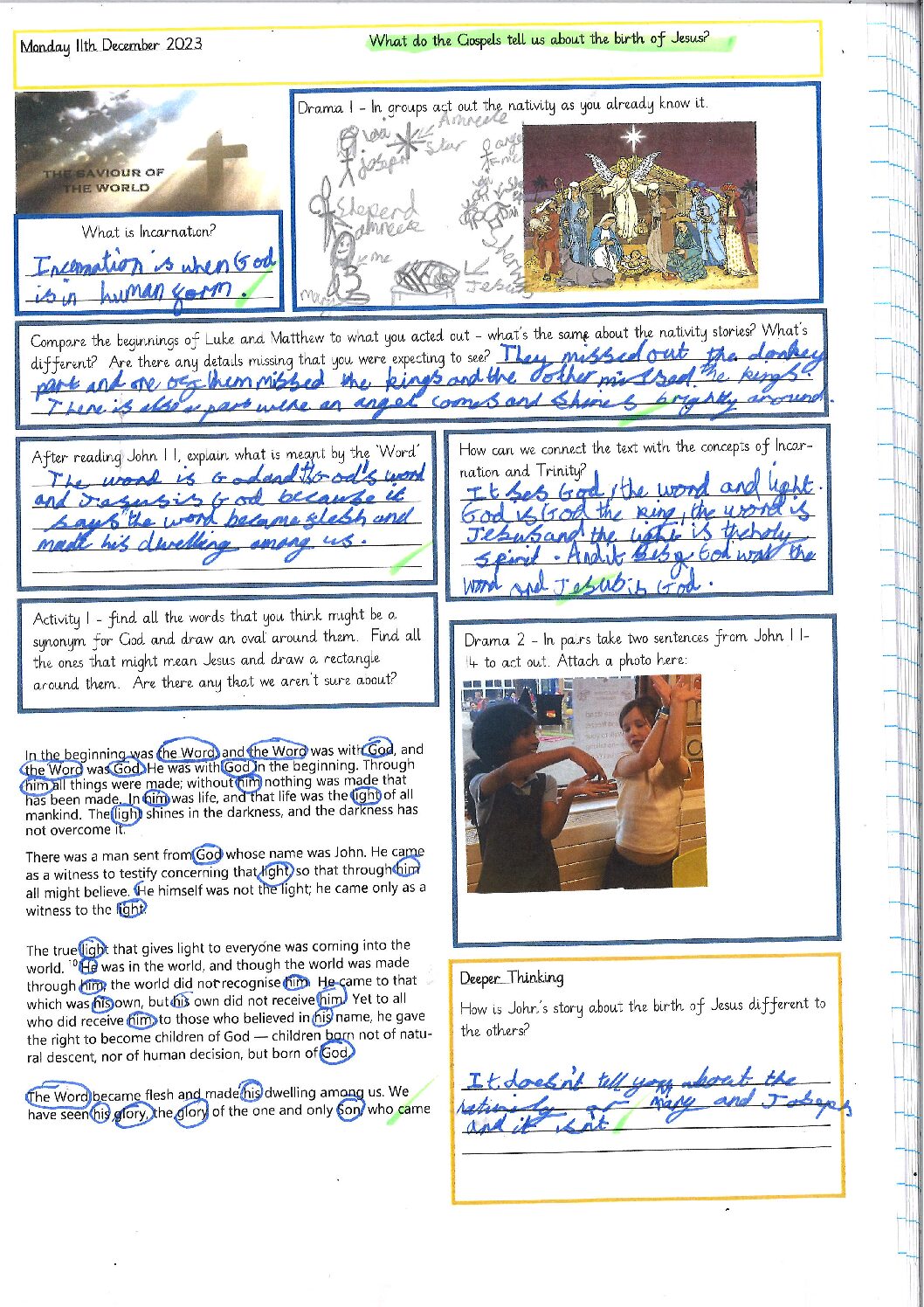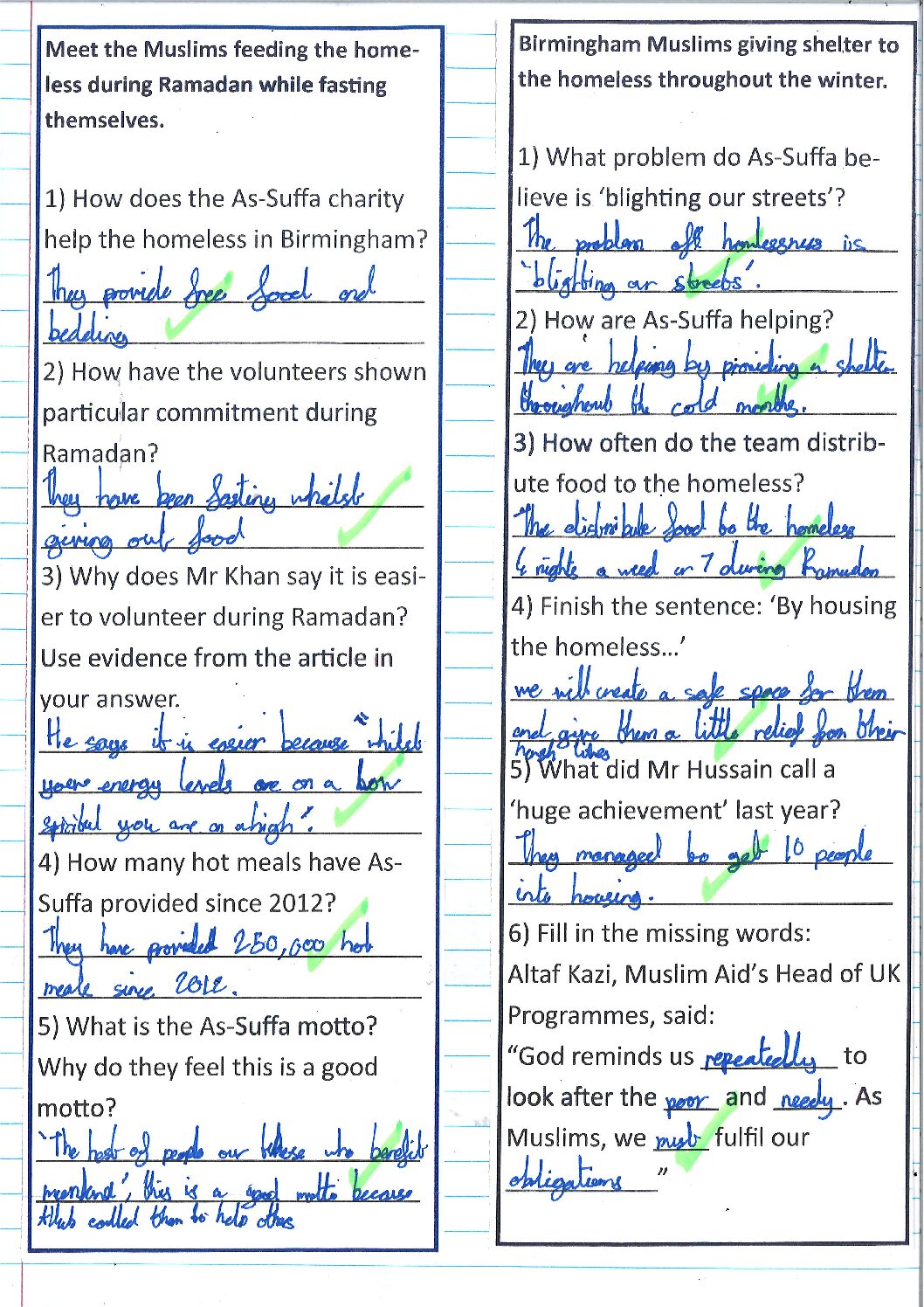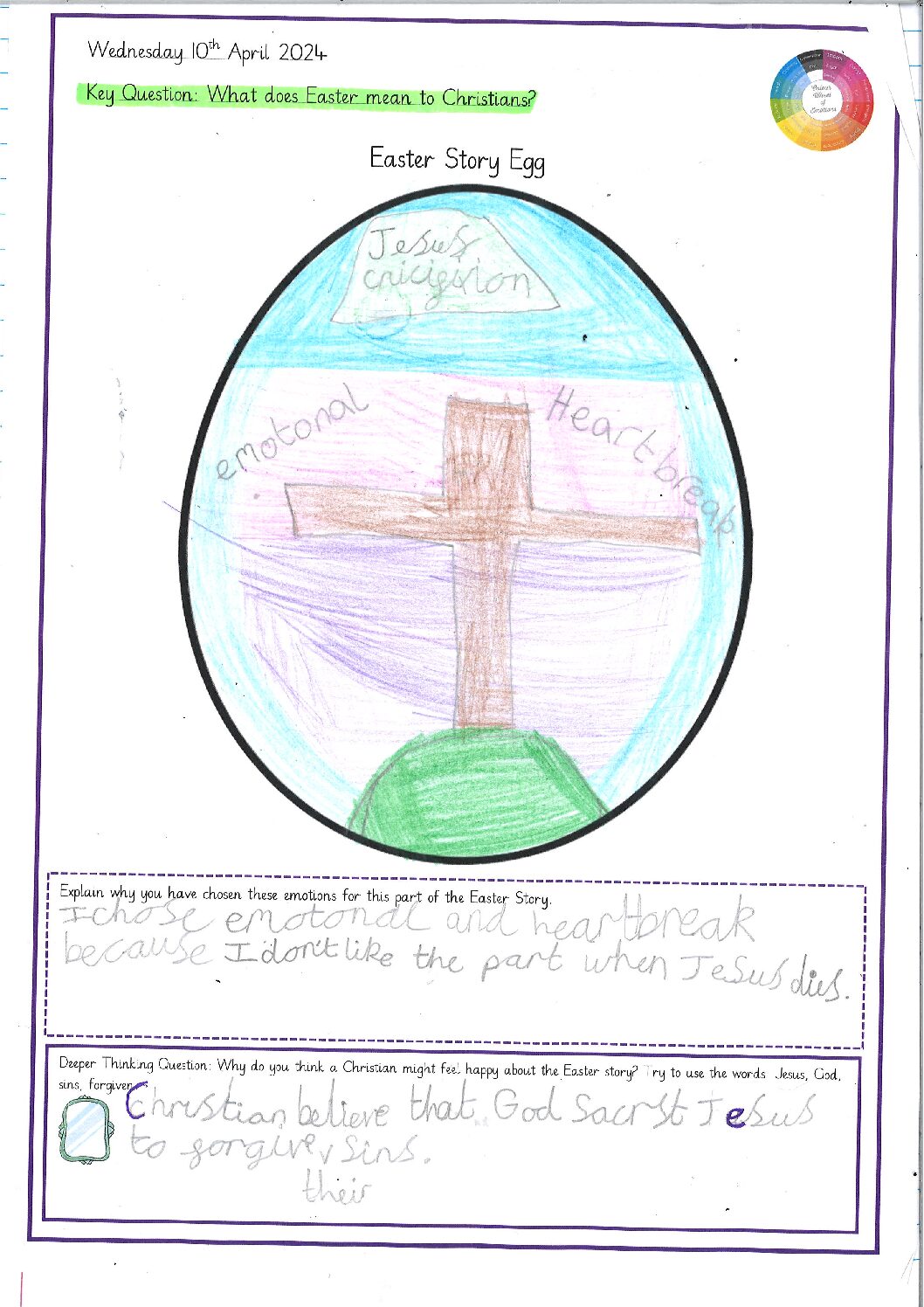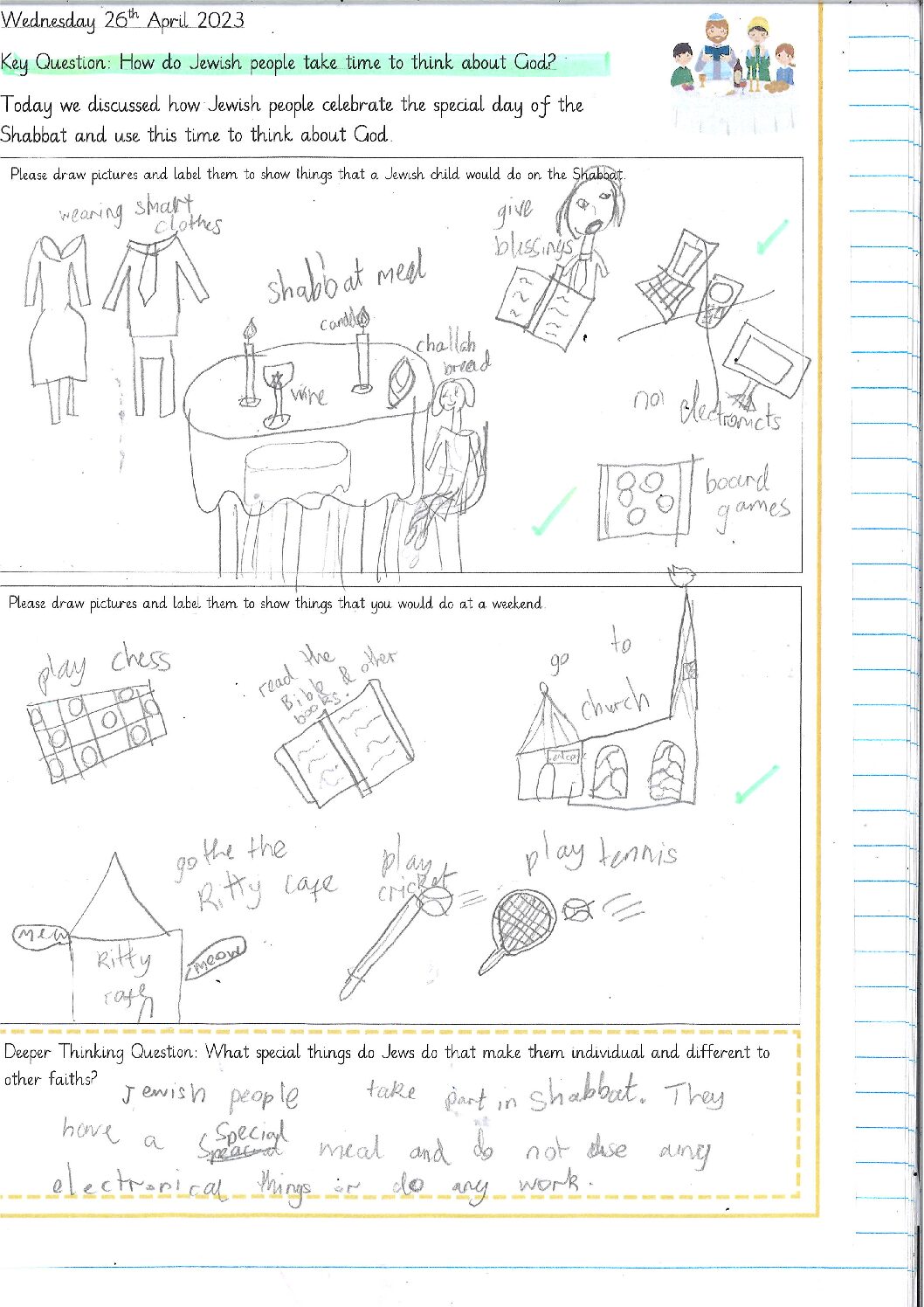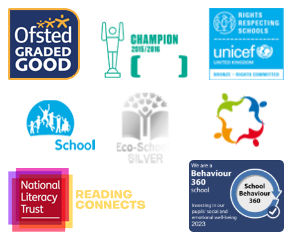Religious education is used as a driver for all of our learning projects. Our curriculum uses values to link learning so that children can make connections between different areas of the curriculum and retrieve knowledge well. We begin every learning project (one per term) with an RE unit of learning where the project values are explored. For example: in Y3 they ask the Project Question: ‘How does food bring us together?’ and study the values: ‘Community, Sharing, Choice, Happiness and Compassion’. Sikhism is used to launch this project and the children explore: Why is there a Langar (kitchen) in a Gurdwara?
Three times a year, the whole school studies an ‘Understanding Christianity’ unit, which follows the liturgical calendar: Incarnation at Christmas; Salvation at Easter and God & Kingdom of God at Pentecost. These units are special as they are a time when children have the opportunity to learn about the faith that is the foundation of the school; they learn about Christianity and from it, making links to their own lives and the life of the community.
All of the RE knowledge and skills is mapped out in our ‘Religious Education Progression Document’ and our medium term planning for RE. Instead of ‘Aims’ as learning intentions, we use questions to introduce the learning in lessons and measure their success based on how well children can answer them. RE units are planned by Senior Leaders and our RE leader, and with the support of the incumbent at St Mary’s Church. Throughout our RE learning sequences we use ‘Deeper Thinking’ questions to enable children to demonstrate their understanding and link our RE learning to their own lives – facilitating spiritual development.
Spiritual Development in RE is very important. We use our school encourage our children to: ‘Look out into the world’ (Windows); ‘Reflect on how their learning impacts them’ (Mirrors) and ‘Make changes to how they will live in our school community and the world’ (Doors). With the support of our Governors, staff and pupils, we have written a definition of spirituality and provide our children with opportunities, across the curriculum, to develop this important element of their lives.


